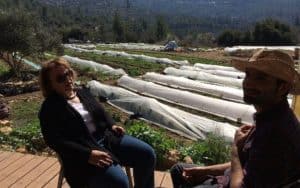Good People Fund Exec Dir Naomi Eisenberger is the featured guest on the podcast of Great.com, a Swedish organization bringing attention to change makers around the world. In this 30-min interview, Naomi speaks about GPF’s mission, impact, and unique place on the philanthropic spectrum, and how GPF is championing and supporting under-the-radar visionaries so they can expand their influence and repair the world.
GPF in the News
We ARE the Leaders We Need Right Now
“Where are the Jewish leaders who speak for women?”
Dr. Susannah Heschel asks this critical question in her July 27th opinion piece in the Forward. She celebrates Rep. Alexandria Ocasio-Cortez’s recent speech on the House floor condemning Rep. Ted Yoho’s demeaning and insulting language and behavior which, unfortunately, is not unusual for women – especially women of color – to experience.
Heschel accurately addresses the ever-present and pervasive marginalization, inequity and, often, harassment that many – if not most – women experience in the Jewish communal world. In particular, she focuses on the professional Jewish landscape.
Rep. Ocasio-Cortez was speaking for Jewish women because she was sharing an experience to which all women can relate. Her experience as a woman is not “other” than Jewish women, it is inclusive of all of us.
While Heschel poses a critical question and shines light yet again on the very issues that have been fueled by the #MeToo moment, we believe that she, in fact, makes her own point.
“Where are the Jewish leaders who speak for women?” We are right here!
We are working tirelessly every day individually and collectively across our community to speak and advocate for Jewish (and all) women, to shine a light on Jewish women’s work and leadership. We are curating forums, events, and now, webinars, working to end inequity, harassment, assault and abuse. We are speaking and teaching, gathering and organizing, hosting (currently virtual) events, planning and strategizing.
We stand today as a diverse coalition, representing Jewish women from all across the country and the globe, from all walks of life, identities, and religious affiliations: Reform, Orthodox, Conservative, Reconstructionist, Renewal and otherwise affiliated or not; we are Ashkenazi, Sephardi, Mizrachi; we are Black, Indigenous, Latinx, Asian, White, and Multiracial; we are LGBTQ+ and straight; we are philanthropists, CEOs, educators, journalists, volunteers, stay-at-home parents, and more.
And today, as a global pandemic swirls around us, we continue to keep that fight alive even while issues deemed more urgent understandably rise to the top.
Last August, an article titled “The Week That All Jewish Women Turned Invisible” appeared on this website. It was a response to a week where once again, many new male CEOs were announced at legacy institutions, multiple articles were published celebrating male-only leadership, and panels featuring exclusively male-only leadership were convened.
An effort began on a highly active Facebook Group, “Year of the Jewish Woman and Allies” – now home to 3,261 members, and heavily populated with heads of organizations and public speakers and writers who speak out for women every day, and who are in collegial dialogue there – to grow a movement that speaks loudly and powerfully on behalf of Jewish women.
We thank Professor Heschel for shining a light, again, as we seemingly continue to need to, on the egregious inequities and abuses of women in the Jewish community. Doing so as a public figure whose name garners much respect and reverence only helps our cause.
However, we pose a question in return. If someone with her extraordinary background, education, awareness and engagement in the Jewish community is asking: “Where are the Jewish leaders who speak for women?” then how can we expect those who are less informed to support and join this effort? Whose responsibility is it to know who our female Jewish leaders are and raise up our voices and our work? If we do not take an active role in educating ourselves as well as promoting the work of Jewish women’s leadership every day – then how can we rightfully express frustration and anger when others’ voices are not “loud enough” and remain unheard?
“Where are the Jewish leaders who speak for women?” WE ARE RIGHT HERE.
But we ask different questions: Where are the Jewish leaders actively seeking out the organizations, initiatives, and women themselves whose voices deserve amplification? Where are the Jewish leaders actively choosing to fund our work? Where are the Jewish leaders with influence and power who are saying “Look here, these bold Jewish women leaders are valiant and persistent in their struggle for justice, for equity, for safety, and for respect. Let’s join them.”
We are here. We don’t need to be found or for others to speak on our behalf. What we need is the Jewish organizational world to see us as leaders and position us at the heads of our largest tables.
People of stature and influence in the Jewish community: You are part of this work. Make it your business to elevate and amplify Jewish women’s voices, follow our work, use your own voice to give the work greater visibility and credibility. So many women (and men) have stepped up to challenge gender and other inequities, and have spoken as eloquently and forcefully as AOC. Support us, engage with us, listen to our stories.
Nicole Nevarez is National Director of Ta’amod: Stand Up!; Jamie Allen Black is CEO of the Jewish Women’s Foundation of New York; Naomi Eisenberger is Executive Director and Co-Founder of The Good People Fund.
Co-signers: (organizations listed for identification purposes only):
- Ruth Messinger / Jewish Social Justice Consultant
- Barbara Dobkin / Dobkin Family Foundation
- Meredith Jacobs, CEO / Jewish Women International (JWI)
- Sara Shapiro-Plevan, Co-Founder / Gender Equity in Hiring Project; Founder and Lead Consultant / Rimonim Consulting
- Sally Gottesman
- Rachel Weinstein, President / Jewish Women’s Foundation of New York
- Shahanna McKinney Baldon
- Dr. Judith Rosenbaum, CEO / Jewish Women’s Archive
- Eve Landau
- Ginna Green, Strategist and Consultant
- Tania Laden, Executive Director / LivelyHoods
- H. Glenn Rosenkrantz
- Sarah Chandler, CEO / Shamir Collective
- Rabba Melissa Scholten-Gutierrez
- Hazzan Joanna Selznick Dulkin
- Rabbi Rebecca W. Sirbu, Co-Founder / Gender Equity in Hiring Project; CEO / RabbiCareers.com; Engagement Division Director / Hadassah
- Rabbi Steven Bayar, Emeritus / Bnai Israel, Millburn, NJ / Director JSurge
- Naama Haviv, Director of Community Engagement / MAZON: A Jewish Response to Hunger
- Ann Cohen / Ann Cohen & Associates
- Susan Weidman Schneider, Editor in Chief / Lilith Magazine
- Samantha Anderson, Founder & Managing Partner / Ceres Group Advisors
- Jordan Namerow, Founder and Principal / Jordan Namerow Communications
- Rachel Gildiner, Executive Director / GatherDC
- Dana Levinson Steiner, Board of Directors / Jewish Women’s Foundation of New York
- Amanda Katz, Executive Director/JCADA
- Rebecca Youngerman, Founder and Principal / RGY Consulting
- Jodi Bromberg, CEO / 18Doors (formerly InterfaithFamily)
- Deborah Meyer, CEO / Moving Traditions
- Naomi Tucker, Executive Director / SHALOM BAYIT, Ending Domestic Violence in Jewish Homes
- Larisa Klebe, Director / Nishmah: The St. Louis Jewish Women’s Project (a program of the J)
- Dan Brown, Founder and Publisher / eJewishPhilanthropy
- Rabbi Dena Klein / The Jewish Education Project
- Laura Mandel, Executive Director / The Jewish Arts Collaborative
- Rabbi Yael Ridberg / Congregation Dor Hadash
- Rachel Eisen, Co-Founder / Mentoring for Equity
- Sara Miller-Paul, Co-Founder / Mentoring for Equity
- Rabbi Andrea M. Gouze, Temple Beth Emunah / Director of Pastoral Care, New England Sinai Hospital
- Cindy Rowe, Executive Director / Jewish Alliance for Law and Social Action
- Susan Adler, Executive Director / Boston Jewish Film
- Idit Klein, President & CEO / Keshet
- Stephanie Levin, Chief Engagement & Innovation Officer / Peninsula JCC
- Karyn Grossman Gershon, Executive Director / Project Kesher
- Allison Fine
- Dana Sheanin, CEO / JewishLearningWorks
- Rabbi Rachel Ain
- Rabbi Danya Ruttenberg
- Jacqueline Ulin Levey, CEO / WashU Hillel
- Carrie Bornstein, Executive Director / Mayyim Hayyim Living Waters Community Mikveh and Paula Brody & Family Education Center
- Rachel Wasserman
- Daphne Lazar Price, Executive Director / Jewish Orthodox Feminist Alliance
- Rabbi Sharon Cohen Anisfeld, President / Hebrew College
- Laura Hyman, Director / Genesis Pre-college Program at Brandeis University
- Rivka Cohen, Director of Partnerships and Strategic Development / Lissan
- Molly Wernick, Community Director/Habonim Dror Camp Galil
- Rabbi Melinda Zalma / Commander, Navy Chaplain Corps / Program Director, Jewish Community Relations Council-NY
- Rabbi Lisa Gelber
- Susan Weiss, Executive Director / Center for Women’s Justice
- Liz Wolfson
- Micol Zimmerman Burkeman / Hebrew Union College – Jewish Institute of Religion
- Libby Goldstein Parker, Executive Director / Jewfolk, Inc.
- Susan Holzman Wachsstock, The Jewish Education Project
- Sarah Waldbott, Director of Development/ National Council of Jewish Women New York
- Naomi Less, Founding Ritual Leader and Associate Director, Lab/Shul
- Sara Atkins
Addressing Sexual Harassment in the Jewish Workplace
The #Me Too movement is coming to the Atlanta Jewish community. The Jewish Women’s Fund of Atlanta is hosting a Change the Culture Summit Feb. 24 to address sexual harassment, sexism and gender discrimination in Jewish workplaces and communal spaces. The half-day program will address issues of safety, respect and equity and is designed for professionals, board members, lay leaders, donors and general community members.
Or perhaps the #MeToo movement is already here. As part of its Change the Culture Initiative, JWFA is seeking anonymous personal stories of discrimination, harassment and assault in Jewish workplaces.
According to Rachel Wasserman, executive director of JWFA, several such accounts have already been received, from both women and men. “We plan to incorporate these stories into the summit,” she said, stressing that she receives the anonymous reports directly from Google. “People are afraid that their stories can be traced,” she acknowledged.
The summit, to be held at The Selig Center, will kick off by sharing national research that shows the issue of sexual harassment in the workplace is not limited to the non-Jewish world. “The numbers speak for themselves,” Wasserman said.
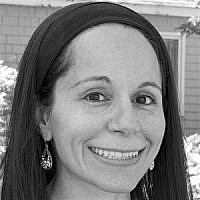
The research was conducted by Guila Benchimol, who is senior advisor to the Safety, Respect, Equity Jewish coalition that addresses sexual harassment and gender discrimination. She is also a research associate at the Centre for the Study of Social and Legal Responses to Violence.
Another national expert that JWFA is bringing to the summit is Nicole Nevarez, the inaugural national director of Ta’amod: Stand Up!, a multi-pronged initiative dedicated to ending gender abuse, harassment and toxic culture in the Jewish communal space. According to Wasserman, Ta’amod is training people around the country to be resources for those who have experienced harassment in the workplace.
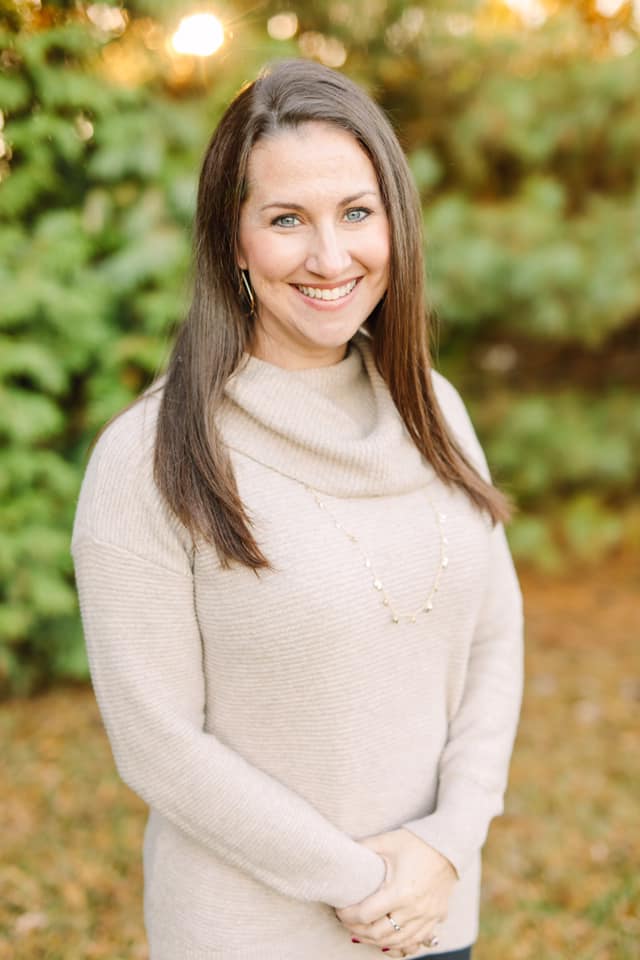
“The country has been engaging in this work for a couple of years now,” Wasserman noted. “We know that, unfortunately, these crimes that happen in the broader community also happen in the Jewish community.” Over the past year, Jewish communities have started to systematically address the issue, with the founding of national organizations and coalitions such as the Safety, Respect, Equity coalition and Ta’amod. These groups are placing special emphasis on the ethical, not just the legal standards that Jews owe to each other.
The summit hopes to attract men and women from all levels of leadership in the Jewish community, said Wasserman, including clergy, professionals, volunteers and lay leaders. “We hope organizations will send teams of people to the summit and see this as a professional development opportunity,” she added.
Wasserman calls the summit just a beginning for the Atlanta Jewish community. The JWFA hopes to become a resource in this area as well as provide training for people to support those who experience harassment in the Jewish world. In March, the JWFA will offer a screening of a documentary about discrimination in the workplace. Although the film is not specifically about harassment in the Jewish world, “some Jewish professionals are interviewed in the film.”
A Year In, Combating Gender Harassment Is Just Beginning
Just over a year ago, we convened hundreds of Jewish community members and presented harrowing, deeply disturbing stories of some of the nameless who have endured and suffered gender harassment across the spectrum of our Jewish communal spaces.
Painful, but we know that personal testimonies have the collective power to upset the order.
Just over a year ago, we convened hundreds of Jewish community members and presented harrowing, deeply disturbing stories of some of the nameless who have endured and suffered gender harassment across the spectrum of our Jewish communal spaces.
Painful, but we know that personal testimonies have the collective power to upset the order.
We called the gathering “Revealing #MeToo As #WeToo,” a jump-start moment to do just that — build awareness, create discomfort, and spur a conversation and reckoning about what we as a community could and should do about an insidiousness that steals dignities and worse.
A culture in which gender harassment — and the power dynamics supporting it — exists needed to be stared down, diminished, and eliminated. And, as importantly, it needed to be replaced with a more evolved and respectful sense of how we interact with each other.
In the year since, our community has absorbed more than a few shocking headlines and applauded the bravery of women willing to go public with tales of harassment and exploitation based on their gender and steeped in antiquated notions of hierarchy.
In some instances, perpetrators and those silently complicit in this abuse have been exposed and separated from organizations that take seriously the Jewish values they represent. In other cases, they have not, shielded by individuals or organizations valuing philanthropic support and favor above respect.
“Why is it such a challenge for Jewish communal leaders to acknowledge that gender harassment isn’t just some other organization’s issue?”
As much as we live in an age characterized unfortunately by short attention spans and even briefer news cycles, we recognize that our focus as a community can’t be on the drama alone. It must also be on the hard and tedious work building communal infrastructure, channels and conversations to affect lasting cultural change. B’Kavod (“with respect”), a joint initiative of our two organizations, The Good People Fund and the Jewish Women’s Foundation of New York, is now a director-led office existing exclusively to help Jewish communal institutions and all who work, learn, or worship at them develop sustainable environments of safety, respect, and fairness.
One of the challenges of addressing gender harassment and abuse in the Jewish communal workplace is the dearth of resources for those who need them. As organizations move toward legal and ethical compliance, there has been a scramble to find the right trainer, coach, lawyer, trauma expert, and others who can work specifically with JEWISH organizations — professionals who understand the complexities and nuances of our community.
Through B’Kavod, we have adopted the Equal Employment Opportunity Commission’s (EEOC) Safe Respectful Workplace training program, reframed it for the Jewish community, and created a growing corps of certified trainers working with Jewish organizations throughout the country to create and advance just what the name says — workplaces and shared spaces that are safe and respectful, where harassment based on gender or sexual orientation meets a zero-tolerance standard.
In the past year, nearly 30 trainers have joined our corps, each educated, certified and supported by Fran Sepler, designer of the EEOC program. Already, in a short amount of time, B’Kavod has delivered Jewish-communal specific, and legally compliant trainings to over 50 organizations throughout the United States. These include Jewish federations, synagogues, educational institutions, social justice organizations, and other Jewish agencies.
In addition, B’Kavod has created channels of communication so that those who have been subjected to gender harassment in Jewish workplaces have a trusted address to report it and receive support. And it has built a collection of relevant and timely resources, including webinars, to help individuals and organizations in the realm of gender harassment in all of its forms.
Throughout this past year, we have often found ourselves to be the agitators within the established Jewish community, spotlighting a troubling reality and creating a movement that challenges a status quo that tolerates and even protects organizational structures that have no systemic barriers to gender harassment.
With the rise of the #MeToo movement and its natural trickle-down effect into our community, we are compelled, as leaders of organizations that put the empowerment and uplifting of women and girls and other voiceless populations at the heart of their missions, to take on this role in both a vocal and strategic manner.
We know that change comes slowly, and that even small incremental advances, like the ones we’ve had, are invaluable.
But as we have spent the last year building, forming alliances —including with members of the Safety/Respect/Equity Coalition, a generous funder of B’Kavod — and spreading the word, we are also cognizant of inertia, even within organizations and among allies that are sympathetic.
Why is it such a challenge for Jewish communal leaders to acknowledge that gender harassment isn’t just some other organization’s issue? Why is there resistance to fostering internal dialogues and having uncomfortable conversations? Why aren’t the boards of our Jewish institutions stepping up and recognizing their role in changing this dynamic? Why aren’t more agencies embracing trainings even as a fail-safe mechanism? Why aren’t more of our community’s generous funders demanding that grantees adopt formal policies addressing this issue?
Moving past this inertia and leading organizations to what is certainly the right place is one of the greater challenges, for sure. So until our leadership embraces this effort with a full heart and determination, we will keep telling our stories, raising the issue in appropriate forums, and reminding everyone — as we so firmly believe — that gender harassment is NOT a Jewish value and that we can do so much better.
Jamie Allen Black is CEO of the Jewish Women’s Foundation of New York. Naomi K. Eisenberger is co-founder and executive director of The Good People Fund.
The Charity Fund Exec Who Helps Good People Do Their Best For Others
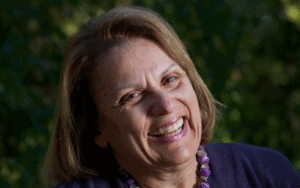
Naomi Eisenberger, executive director of The Good People Fund. (Courtesy)
NEW YORK — As the founding executive director of the Good People Fund Naomi Eisenberger considers her job to be “the antidote to all that’s going on out there.”
Based in New Jersey, the $13 million fund is a relatively under-the-radar grant-making organization targeting social and humanitarian projects in the United States and Israel. Projects range from helping ultra-Orthodox women in Israel through the divorce process, to making sure homeless shelters get adequate supplies of personal hygiene products. One grantee brings music education to underserved kids in New Orleans, and another helps feed the hungry in Tel Aviv.
“I like to see good people do good things,” said Eisenberger, 72, who assumed her role after spending more than 10 years as the managing director of the Ziv Tzedakah Fund.
Eisenberger is also one of the founders of the #GamAni movement, which is the Hebrew translation of #MeToo. The movement was launched in 2016 after a female grantee contacted Eisenberger for advice on how to handle an instance of sexual harassment. Soon after hearing the story, Eisenberger developed a survey with Martin Kaminer, a trustee of the grant making Kaminer Foundation. The nearly 200 responses Eisenberger received convinced her it was time to act. Today #GamAni is training Jewish non-profits on how to properly address and prevent sexual harassment.
The Times of Israel recently sat down with Eisenberger to talk about how she targets her charities, why she believes she has the best job in the world, and what she hopes for her granddaughters and the young women of their generation.
The following conversation has been edited for brevity and clarity.
Naomi Eisenberger, executive director of The Good People Fund, makes a site visit to Kaima and its CEO, Yoni Yefet-Reich, in Israel. The program seeks to give direction and hope to kids at risk through organic farming, leadership development and business learning, and is one of the Israeli organizations supported by The Good People Fund. (The Good People Fund)
The fund works with a broad spectrum of organizations in the US and Israel. What is the common thread linking them together?
Clearly, the common thread is good people. I will often say to people who ask, there are a myriad number of good programs out there that need funding, but for us there has to be that individual, or that small number of people, who have vision and passion.
I can sit down with a potential grantee and know within five minutes if it’s going to be a “yes” or a “no” based on their personality and how they present themselves. Sometimes there’s too much ego and I’ll pick up on that right away. Generally speaking, these are just ordinary people. These people are our guides on how to live a good life.
People might be surprised to learn not all of the GPF grantees are Jewish, and that not all of their clients are Jewish.
We are an organization based in Judaism. We’re guided by Jewish thought. As much as we are commanded [by Judaism] to help everybody, we do. Obviously the programs in Israel are Jewish, but they need to be open to everybody. Some of them are clearly self-selecting, such as programs that deal with ultra-Orthodox women. Of course there’s not going to be any non-Jews in there.
I don’t think I’ve ever gotten a donation that said “Use only for Jews.” I have gotten donations that said “Only use for Israel,” or, “Don’t use for Israel,” but I think everybody understands we are here for everybody. We fund things that are Jewish, we fund things that are synagogue based and we fund things that are church based. We are ecumenical.
I have a tendency to want to help people who have fewer resources than others. It’s just how I was raised. It was what I saw at home. My parents were very involved as volunteers. My father was president of the synagogue and he was a volunteer fireman and he was president of his Kiwanis. It never dawned on me to do anything different, and I hope I have passed that on to my kids.
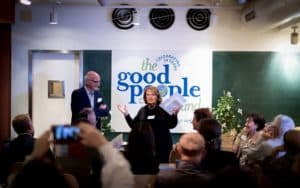
Naomi Eisenberger, executive director of The Good People Fund, addresses heads of grantee organizations in Israel at a 10-year anniversary gathering and celebration in February in Tel Aviv. (The Good People Fund)
In a headline driven culture where big donations and big organizations get the attention, can you speak to the philosophy of micro-philanthropy and how that can be a model for people looking to make a change?
I never look at the glass half full. I abide by the premise that small things can make a significant difference.
When someone asks me to explain the Good People Fund I use the starfish parable. There’s a grandmother and grandchild walking on the beach and there are a thousand starfish on the shoreline. The grandchild starts throwing them back in the water, one at a time. The grandmother says, “Why are you doing that? You’ll never get them all back.” And the kid says, “But it makes a difference to the ones that I did throw back.”
That’s how we look at this, changing one life at a time. That is always what guides me.
People who want to put their names on buildings are not going to understand us. We deal with modest sums of money. At tops our grants are $15,000 to $20,000. For small organizations that’s a good deal of money. We’re not dealing with people who have millions to give away.
The #GamAni movement has been described as a #MeToo movement among those doing Jewish communal work. Is that an apt description?
I’ll preface it by saying #GamAni is indicative of where I think we, as an organization, should be. I see us as partners with our grantees. So this young woman had just come back from coffee after meeting with a potential donor and he had accosted her. She didn’t know what to do. She felt horrible, she felt dirty. She reached out to me.
I felt personally tied to the issue because she was my grantee. So I started looking into whether anything had been done on harassment. I couldn’t let it go and I called Martin [of the Kaminer Foundation]. We put together a questionnaire and the responses absolutely raised the hair on the back of our heads like you would not believe.
The private #GamAni Facebook page allows a common place for people to share experiences. I know a few perpetrators have been identified, but they have not been dealt with yet. [Eisenberger declined to divulge names as the Facebook page is a closed group.]
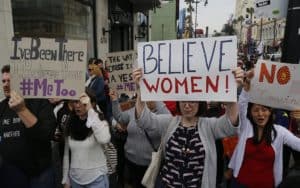
Participants march against sexual assault and harassment at the #MeToo March in the Hollywood section of Los Angeles on November 12, 2017. (AP Photo/Damian Dovarganes)
A very significant issue of sexual harassment in the Jewish world was uncovered, but what is happening is no different than what is happening on Wall Street, what is happening in the media, really what is happening everywhere.
But do I equate this with the #MeToo movement? No, and I’ll tell you why. I have a lot of concern about the #MeToo movement and the excesses of it. There have been a lot of people drawn and quartered who I think should not have been.
What progress has #GamAni made and what pushback have you received for it?
I apprised my board from day one and told them if you want me to step back I’ll step back. But, because we are part of the communal world I don’t see this as a disconnect for our mission.
I did have two donors who expressed displeasure that we are doing this. Both of them equated it with #MeToo and the excesses of #MeToo. I explained it overlaps with our work, and that I could not step away from this any more than I could step away from our other work. I was taught to be this way and this is the way I live my life.
For the most part the organized Jewish communal world has gone along with it. I think some of the organizations may not be going along happily, but they are going along because they saw the train has left the station on this.
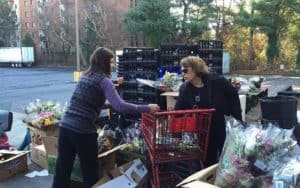
Naomi Eisenberger, right, executive director of The Good People Fund, helps in food rescue efforts of one of the group’s non-profit partners, Second Helpings Atlanta. (The Good People Fund)
One of the things we did was to bring some training to Jewish communal organizations, some of which are very small. Last December we had 12 New York based organizations for a daylong training. The ultimate goal was for them to develop their own policies. Most had none in place, or the policies weren’t adequate. It was uncharted territory for them.
There is a call for more women in leadership roles, but having women at the top doesn’t guarantee the culture will change. How do you really change the culture?
This is an evolution. I’m hoping by the time my 16-year-old granddaughter, or maybe my 12-year-old-granddaughter, reach the workplace they will start to benefit from what their grandmother was part of. When I look at myself, and think “How did you get here? What does it matter at 72?” First of all being a victim myself has driven me. That’s near the top. Also, I’m always looking for the underdog. It’s just who I am. It’s always where I’m going to go.
Could it have been professional suicide to do this [#GamAni]? Maybe, but I’d like to hope there are a few good people left in this world and I believe that there are. Truthfully, what I do every day is what keeps me going. There isn’t a bad moment in my day, and who has a job like that?
Why Bigger Isn’t Always Better
Scrolling through the daily barrage of philanthropy-related news releases, I often encounter numerous articles from large foundations announcing prizes, summits and fellowships. Indeed, these are all noteworthy organizations doing significant and impactful work, but should donors looking to support nonprofits only look to large foundations and ignore micro-philanthropies? Are prospective donors aware of the benefits of working with a micro-philanthropy when it comes to impact and engagement?
Following a Different Path
As the co-founder and executive director of The Good People Fund, I believe that too often donors overlook organizations such as ours that specifically address the needs of these small grassroots efforts, who by their very nature lack the means to be visible to larger numbers of donors despite the effectiveness of their work. With grants totaling nearly $8 million during the past eight years and a modest infrastructure, I like to believe that we are changing the philanthropic landscape.
The Good People Fund is an organization that works exclusively with small grassroots nonprofits started by inspiring individuals committed to changing the world. In the past eight years, more than 150 grantees, all small to mid-sized organizations, have benefited from our insight and support.
Each operates with low overhead and on a personal scale, developing creative solutions that address poverty, hunger, disability, trauma recovery, social isolation and other significant challenges, but whose work would otherwise go unsupported. At The Good People Fund our vision is clear: Help donors do a maximum of good with each dollar spent by connecting donors with the Good Person (grantee) whose work best realizes their personal giving goals.
Emphasis on Direct Mentorship and Guidance
What makes our work both unusual and highly effective is the strong personal relationships we build with grantees. I strongly believe in our 4S model: Scope (focusing on programs that address a wide range of social needs), Screening (carefully vetting each prospective grantee), Supervision (mentoring and guidance continues well beyond the issuance of a check) and Speed (working efficiently and with minimal bureaucracy).
What we emphasize to both grantees and donors about our philosophy is that a newly established or a smaller scale nonprofit has their best chance of success if they can take advantage of the benefits of a personal connection; a mentor to guide them in addition to the shared experiences of other successful nonprofits. This connection to direct mentorship and guidance is too often overlooked by donors. We are very closely tied in to the grantees’ work in ways that larger entities can not be.
With so many years of involvement with small nonprofits, I find donors appreciate the strategic perspective we provide and grantees appreciate the unique way we handle their needs. We have established a deep network and general knowledge of the nonprofit world and take pride in facilitating partnerships, connecting people and programs, and offering guidance and expertise.
“I have been supporting the work of the Good People Fund since it began back in 2008,” explained one long-time donor. “I believe in its mission and have seen first hand how my donation can directly impact this work. They are attuned to what is important to me as a donor and I appreciate the guidance they provide in selecting to support an organization that shares in my values.”
Traditionally, funders donate, step away and perhaps ask for a report on how their funds were used. The Good People Fund works on a much more personal level and believes that our model could play an even more significant role in philanthropy today. It is not just about site-visits and grant reports; relationship building, hands-on support and acting as a partner, collaborator, advocate and sounding board for both donors and grantees is essential to our model’s success.
Naomi Eisenberger co-founded The Good People Fund in 2008 and became its first executive director. Follow @goodpeoplefund on Twitter.

